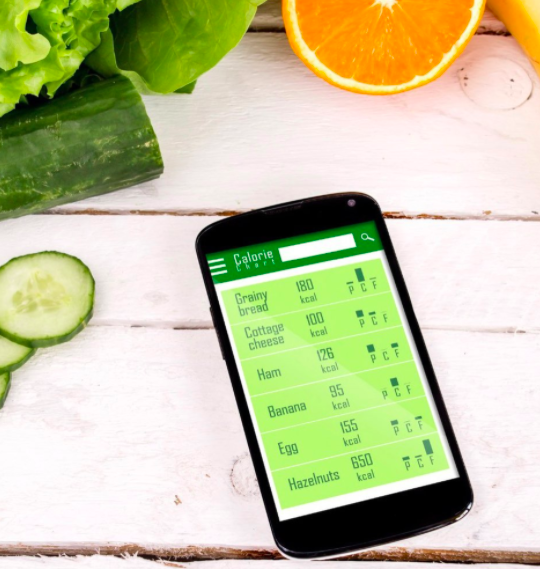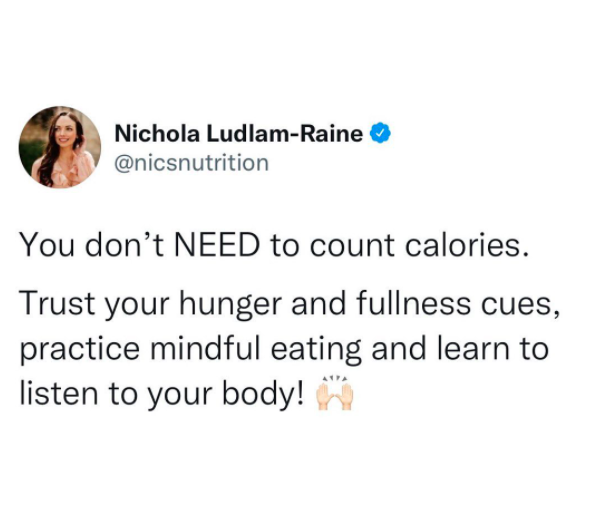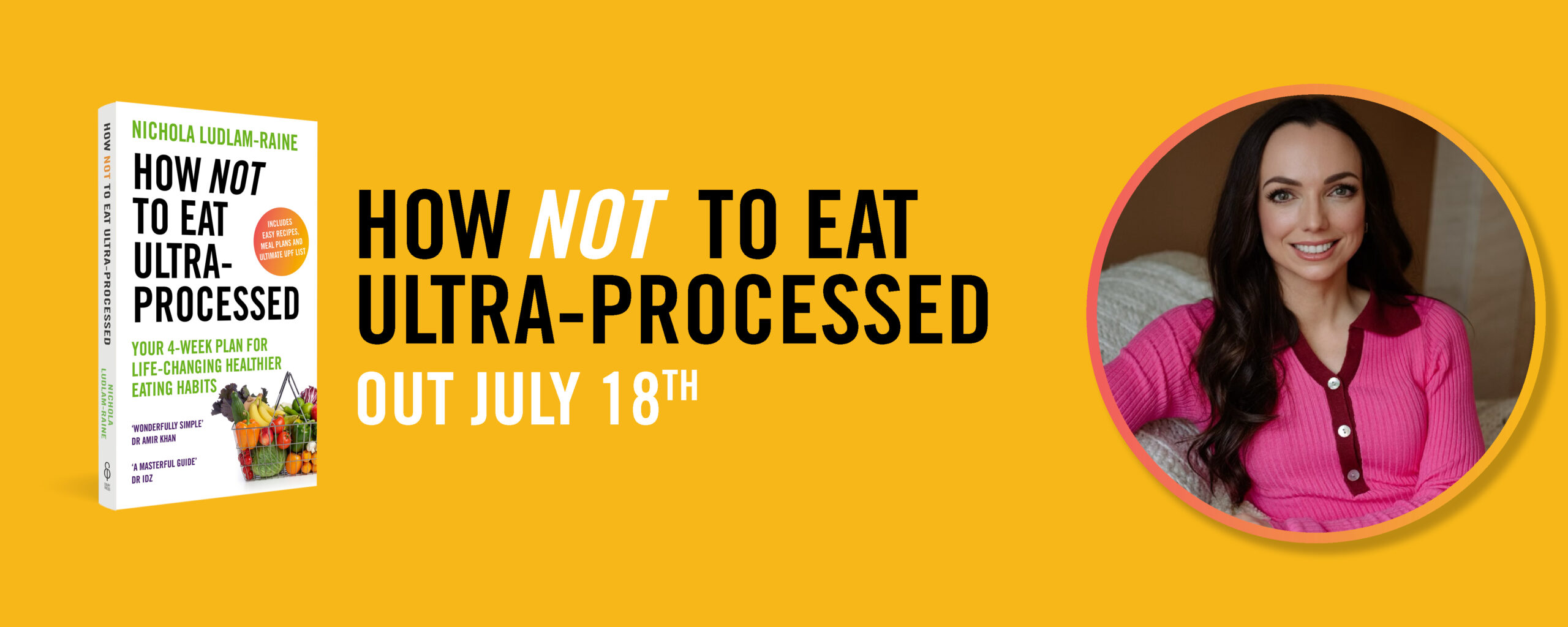
In the nutrition world, there is this big myth, that if you want to lose or gain weight you have to count calories. However, you don’t need to count calories, learning to listen to your body can be just as beneficial for your health and long-term weight management.
While calories can be important when it comes to losing, maintaining, or gaining weight, they should not be our priority when it comes to improving our health.
WHAT you consume is more important for your overall physical and mental well-being. You may have also heard of a way of eating called ‘intuitive eating’ and may be wondering exactly what it is and how you practice this.
Intuitive eating involves thinking more mindfully about how we eat, what makes us feel good and what we enjoy – rather than focusing simply on food as fuel. We eat when we feel hungry and stop when we feel sufficiently full. Intuitive eating may help you become more in tune with your body’s needs and be more present, without worrying about food all the time.
Like most things in life, this can feel like it’s ‘easier said than done’ so here are some of my top tips – hope you find this useful!

1️⃣ Keep in mind that food is food, not numbers. This may help you to manage your food intake because you eat as much as you feel your body needs. Even if you overdo it and eat too much sometimes, it’s OK – sometimes it happens and we are only human!
2️⃣ If you’ve been counting calories for a long time and want to start eating more intuitively, the first thing you can do is delete the calorie counting apps. After a couple of weeks or months, it may be worth checking if your eating (+/-) as much as you need for 2-3 days, remembering to pick typical days, not for example when you are on holiday.
3️⃣ When you eat, focus on eating and be present. Try to avoid watching TV or scrolling through your phone and focus on your plate. When we are distracted we usually consume more than we need. You can find and practice mindful eating meditations using courses on apps such as Headspace or Youtube.
4️⃣ Try to eat slowly. It can take approx. 20-30 minutes for our body to send a satiation signal (a hormone called leptin), which is why we often overeat subconsciously.
5️⃣ Think, why are you eating? Is it hunger or through emotional needs? This can often be triggered by stress, frustration, boredom, cravings, or suppressing emotions. Try to avoid “all or nothing” thinking and focus on the 80/20 principle. It’s okay to sometimes eat sweets or crisps instead of a salad!
💛 What benefits might be eating more intuitively bring to your life?
Let me know in the comments! 👇🏼

Hi Nichola,
Reading your information makes so much sense .
I’ve followed diets all my life , I’m 65 and got nowhere. I’m taking on board al your suggestions, I have trouble with portion control on a daily basis , I’m going to make your recipes & snacks and hopefully loose some weight.
Thanks for your help